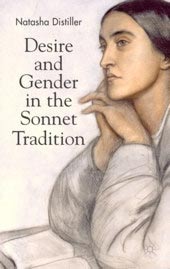Complicities: a theory for subjectivity in the psychological humanities
(Palgrave 2021)
This book lays out the argument for the importance of a psychological humanities. It explains the concept of complicity, which is the term developed in the book to argue against binary thinking as a way of understanding human being and human psychology. The book explores liberalism and neoliberalism as both constituents and consequences of the emergence of the psy disciplines through specific processes of modernity in the West. It explores the history of race thinking in the psy disciplines; aspects of gender and sexuality; and the new subjectivities structured by the advent of the internet and social media, to illustrate the theory of complicit human being that the book develops. Finally, Complicities explores therapeutic modalities that fit with a complicit theory of human being: feminist therapy, Interpersonal Neurobiology, Polyvagal Theory, Internal Family Systems, and intersubjectivity. It examines how to be both systems-oriented and work from a depth approach, as well as connected to a social-justice-oriented psychotherapy practice.
Complicities is available on Open Access
Shakespeare and the Coconuts
(Wits University Press, 2012)
“The term ‘coconut’ is one of several edible designations, including ‘bounty’ (from the American Bounty chocolate bar), ‘topdeck’ (a South African chocolate bar) ‘apple,’ ‘banana,’ and, of course, ‘oreo’ (from the American Oreo cookie), used to designate someone who, due to his or her behaviour, identifications, or because they have been raised by whites, is ‘black’ on the ‘outside’ and ‘white’ on the ‘inside.’ In South Africa, the appellation ‘coconut’ is currently in extensive circulation, and is closely tied to class mobility as indicated through speaking a specific kind of ‘white’ English. When used by those who are claiming access to an authentic blackness of whatever shade, the term has derogatory implications of inauthenticity, artificiality and, sometimes, shameful or shameless aspiration.”
In this book Natasha Distiller explores historic and contemporary uses of Shakespeare in South African society which illustrate the complexities of colonial and post-colonial realities as they relate to iconic Englishness. Beginning with Solomon Plaatje, the author looks at the development of an elite group educated in English and able to use Shakespeare to formulate South African works and South African identities. Refusing simple or easy answers, Distiller then explores the South African Shakespearian tradition postapartheid. Touching on the work of, amongst others, Can Themba, Bloke Modisane, Antony Sher, Stephen Francis, Rico Schacherl and Kopano Matlwa, and including the popular media as well as school textbooks, Shakespeare and the Coconuts engages with aspects of South Africa’s complicated, painful, fascinating political and cultural worlds, and their intersections.
Written in an accessible style to explain current cultural theory, Shakespeare and the Coconuts will be of interest to students, academics and the general interested reader.
Fixing Gender: Lesbian Mothers and the Oedipus Complex
(Fairleigh Dickinson University Press, 2011)
Fixing Gender uses psychoanalysis to explore the theoretical implications for the gendering of the human subject that arise from the situation of lesbians raising children from birth. In the face of the powerful evidence of the ways gender operates, and in the deep structural ways the logic of gender perpetuates, both made visible by psychoanalysis, this book asks: Is gender always fixed? Can the system which is produced by, and which produces, gender be altered? Can gender be fixed?
The work begins by sketching the implications of gender as elucidated by feminist thinkers in general and feminist psychoanalytic thinkers in particular. Moving to Freud's theory of the subject, the work examines the logic of the Oedipus complex, and from there it looks at what feminist object relations theorists have done with and to the logic of the Oedipus complex. The book then moves to the literature on lesbian family functioning; and finally the work ends with a radical interrogation into the possibilities enabled by paying attention to form, and highlighting its constitutive possibilities.
Horae Amoris: The Collected Poetry of Rosa Newmarch
Edited and with an Introduction and notes by John Holmes and Natasha Distiller
(Rivendale Press, 2010)
Rosa Newmarch (1857-1940), the influential musicologist and Russian scholar, was the first truly queer poet in English Literature. In her powerful and moving poetry, she explores desire and social politics, negotiating the rules of gender at a time when modern sexual identities were just beginning to take shape. For the first time, this edition gathers together all Newmarch’s poetry, including occasional pieces not found in her published collections and her admired translations from the Russian poets. The editors provide a detailed Introduction and Notes demonstrating the striking interrelations of poetic influences, gender indeterminacy and same-sex desire, classical music, and Russian culture within Newmarch’s extraordinary and overlooked poetry.
Desire and Gender in the Sonnet Tradition
(Palgrave Macmillan, 2008)
This new study explores the poetic tradition of the love sonnet sequence in English as written by women. Natasha Distiller offers a unique contribution to the debate about gender and subjectivity by taking the subject of the sonnet as an analogue for the Lacanian subject. The book ranges from the development of Petrarchism in sixteenth-century English poetry, to sequences by Englishwomen in the eighteenth and nineteenth centuries. It examines the work of Edna St Vincent Millay in the early twentieth century, and explores the Petrarchan inheritances in gangster rap today. Offering a distinctive theoretical scope, and speaking to scholars of feminist theory, of the sonnet, of women's literary history and of cultural studies, it engages with current and ongoing debates about the place of women's voices in Western literature and theories of subjectivity; about the development of a psychoanalytic literary critical vocabulary; and about the history of poetics in discourses of love.
South Africa, Shakespeare, and Post-Colonial Culture
(Edwin Mellen Press, 2005)
This book works within the frameworks of post-colonial studies and cultural studies in order to theorize, and then to illustrate, the possibilities for cultural creation in the context of oppression. It re-works the concept of hybridity, and the philosophies of liberalism and humanism, in order to suggest that these important and much-contested terrains within critical theory have specific potential in a South African context. This book applies these theoretical points to a trajectory of writing in English in the region, which it finds embodied in the writing of Solomon Plaatje, Peter Abrahams, Es’kia Mphahlele, Bloke Modisane, and Can Themba. By seeking to unlock the complex and sometimes contradictory ways in which Shakespeare is useful to these writers, the book addresses the traditional imbalance of knowledges in Shakespeare Studies by conceptualizing the presence of Shakespeare in these texts as indicative of an act of cultural appropriation and political resistance. Ultimately, the book makes a contribution to post-colonial and cultural studies’ engagements with how culture works, how resistance is inscribed, and what role theory can play in the neo-colonial world.
Under Construction: ‘Race’ and Identity in South Africa Today
Edited by Natasha Distiller and Melissa Steyn (Heinemann, 2004)
Under Construction: 'Race' and Identity in South Africa Today takes for granted that 'race' is a social and not a biological category. The concept of 'race' is therefore open to construction, deconstruction, reconstruction, resistance, subversion and challenge.
Through the genres of cartoon, performance art, photography, poetry, short story, dialogue, discourse analysis and academic essay, the contributors - including Zapiro, Sandile Dikeni, Ashraf Jamal and Anton Kannemeyer - attempt to answer questions about lived experience in contemporary South Africa and the challenges and hopes which these experiences embody.
Under Construction: 'Race' and Identity in South Africa Today investigates and engages with 'race' as one of the primary categories of identity - and one that continues to define access and daily experience - in 'post-apartheid' South Africa'.




